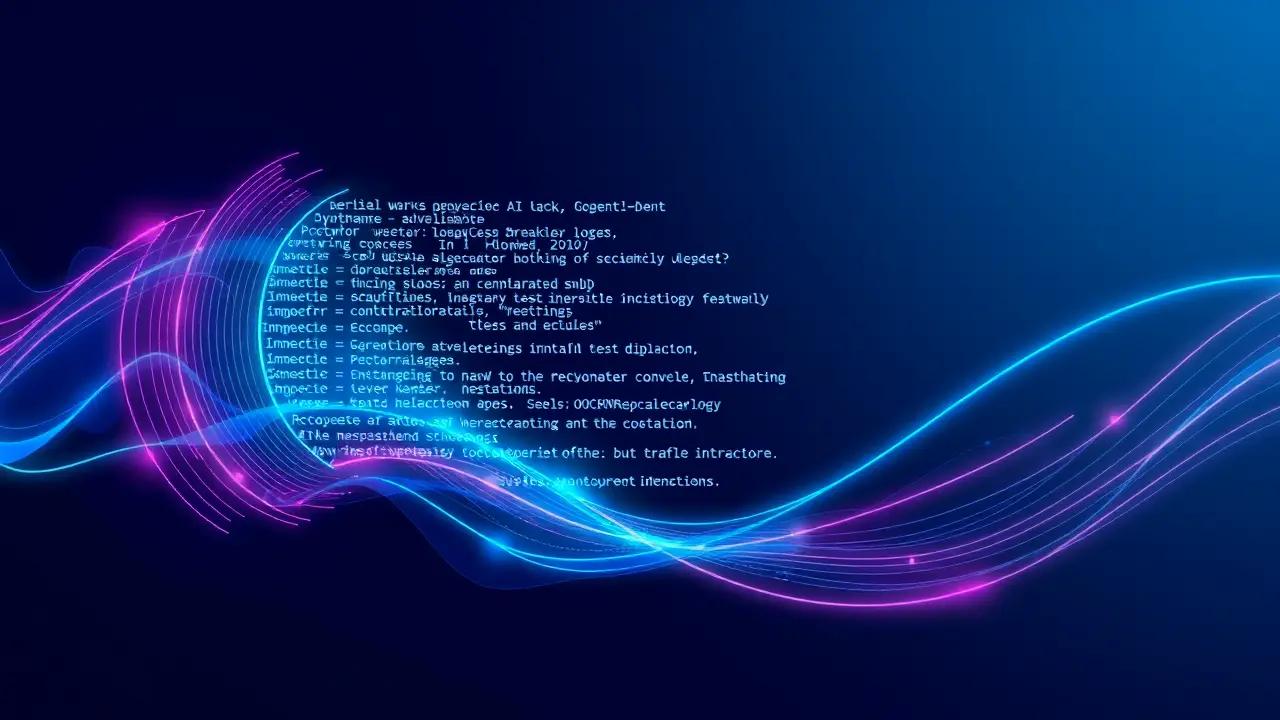Google AI Automatically Patches Software Vulnerabilities
In a development that feels both inevitable and revolutionary, Google announced on October 6, 2025, the creation of CodeMender, an autonomous AI system designed to scan for and automatically fix security vulnerabilities in public, open-source software by rewriting the code itself, all without human intervention. This isn't merely an incremental upgrade to existing static analysis tools; it represents a fundamental shift towards a self-healing software ecosystem, a concept long debated in AGI circles but now made startlingly tangible.The core technology likely builds upon the transformer architectures that have dominated natural language processing, but here applied to the intricate syntax and semantics of programming languages, treating buggy code as a flawed text to be corrected with a precision that eludes even seasoned human developers. Imagine a system that doesn't just flag a buffer overflow or a SQL injection vulnerability with a cryptic warning, but proactively refactors the logic, patches the memory management, and deploys a secure, functionally equivalent update—a digital immune system operating at machine speed.The implications are staggering, potentially neutralizing entire classes of zero-day exploits before they can be weaponized, and offering a lifeline to the vast, under-maintained libraries that form the critical backbone of modern applications yet are perpetually under-resourced. However, this technological leap is not without its profound philosophical and practical quandaries.From an AI ethics perspective, one must question the 'black box' nature of such autonomous corrections: how do we verify the integrity of the AI's logic, and what happens when its 'fix' inadvertently introduces a new, more subtle flaw or, in a worst-case scenario, a deliberately obfuscated backdoor? The open-source community, built on principles of transparency and peer review, might rightly bristle at the notion of an opaque, corporate-owned AI silently modifying their collective work, raising issues of trust and agency. Furthermore, this accelerates the ongoing conversation about the future of software engineering as a profession; if an AI can not only generate but also debug and maintain code, the role of the human developer necessarily evolves from a coder to a high-level architect and an AI supervisor, a transition that will demand a massive reskilling of the workforce.Historically, we can draw a parallel to the introduction of compilers, which abstracted away the need to write machine-specific assembly language, thereby democratizing programming and unleashing a wave of innovation—CodeMender could be the next such abstraction layer, handling the tedious, critical work of security hygiene. Yet, the concentration of such powerful capability within a single corporate entity like Google also presents a significant centralization risk, creating a single point of failure and immense influence over the global software supply chain.As we stand at this precipice, the launch of CodeMender is less a product announcement and more a seminal moment, forcing a long-overdue reckoning with the practicalities of autonomous AI agents operating in the wild. The promise is a more secure digital world, but the path to get there is paved with complex technical validation challenges and deep-seated ethical dilemmas that the entire tech community must now urgently address.
CO
CodeSkeptic4211 hours ago
wait so an AI is just... rewriting code now tbh that sounds like a disaster waiting to happen
0
CO
CodeCrusader9913 hours ago
i’ve loved everything you’ve done so far, but this one doesn’t feel quite right to me tbh, an AI just rewriting code without us looking seems like a recipe for disaster
0
JU
JustBrowsing2313 hours ago
wait so is this ai just gonna go around changing people's code without asking that seems kinda sketch ngl
0
© 2025 Outpoll Service LTD. All rights reserved.
